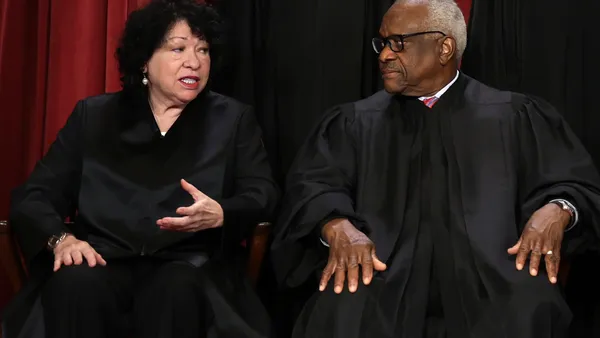A former receptionist for EY sued the company last week, alleging she experienced harassment as well as discrimination on the basis of her race, gender, sex, age and disability in violation of California law.
The plaintiff, an African American woman aged 57 at the time of the suit, worked for EY beginning in 1999 at the company’s Los Angeles office. In August 2017, she suffered a work-related injury that resulted in a stroke and subsequent medical complications. She alleged that EY managers and supervisors routinely harassed and discriminated against her after this sequence of events occurred.
Ultimately, the plaintiff alleged that she was wrongfully terminated in January 2022. She filed the suit Dec. 29 in the Superior Court of California for the County of Los Angeles.
Disability accommodations at issue
After a roughly one-month medical leave following the injury, the employee returned to work. She asked for, and EY approved, accommodations for medical conditions related to the stroke, but she alleged EY staff told her in January 2021 that the company would no longer offer such accommodations.
The plaintiff said the harassing and discriminating conduct began at about this time. On multiple occasions, she claimed her managers and direct supervisors advised her she was “too old” and “too sick” to continue her current role.
Separately, the employee alleged EY managers and supervisors told her that “her job duties should include ‘cleaning tasks’ and that ‘she should be comfortable with such work because she is African American’ and also because she is female.”
According to the suit, the employee complained to EY executives about this conduct, but the company “intentionally ignored” her complaints “and undertook no efforts to prevent further and continuing discrimination and harassment” directed at her. She claimed the managers and supervisors in question retaliated against her by demoting her and forcing her to perform unsafe tasks that fell outside job description.
EY did not immediately respond to a request for comment submitted via online form.
Employer takeaways
Disability accommodations have proven a difficult compliance area for employers to navigate, particularly when employers rescind previously granted accommodations. In some cases, supervisors may not be sufficiently trained to recognize when an employee has requested an accommodation, or they may resist their duty to engage in the interactive process, sources previously told HR Dive.
Regulators took action to address complaints of age discrimination in particular in 2023. In one recent example, the U.S. Equal Employment Opportunity Commission announced a $90,000 settlement with one company that allegedly discriminated against a 49-year-old job applicant because it sought “more junior” applicants for the role in question.













